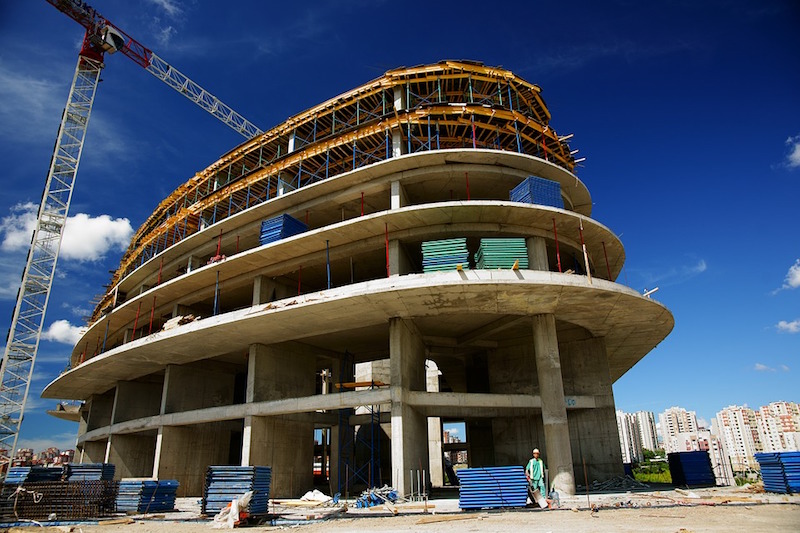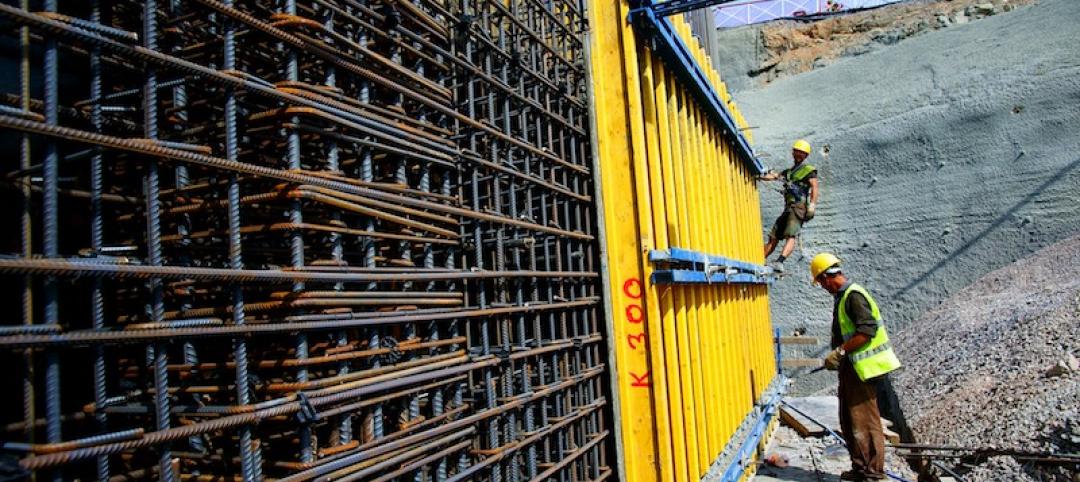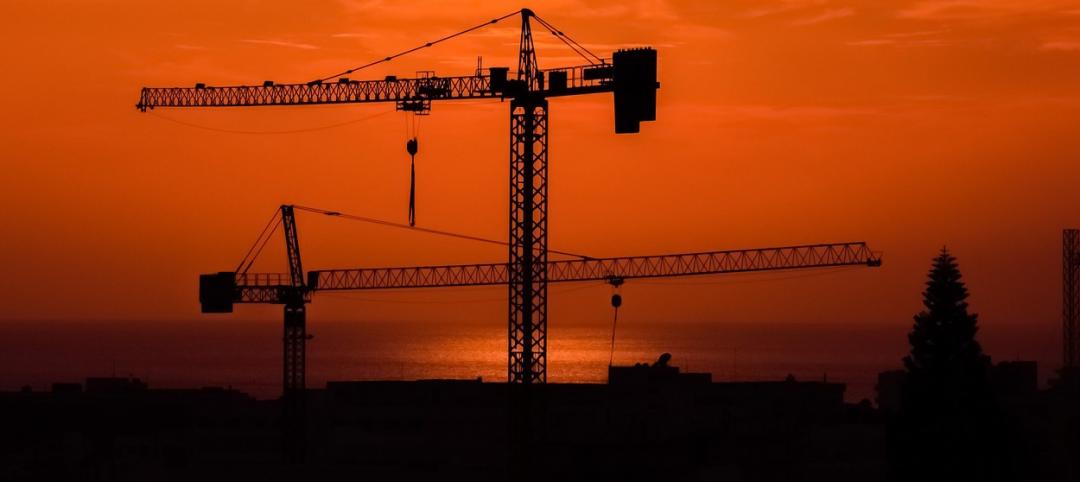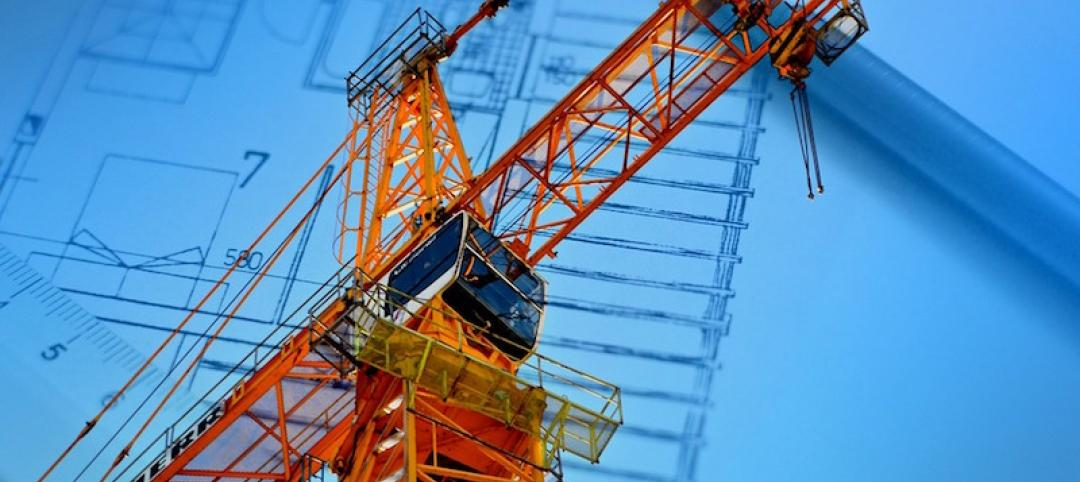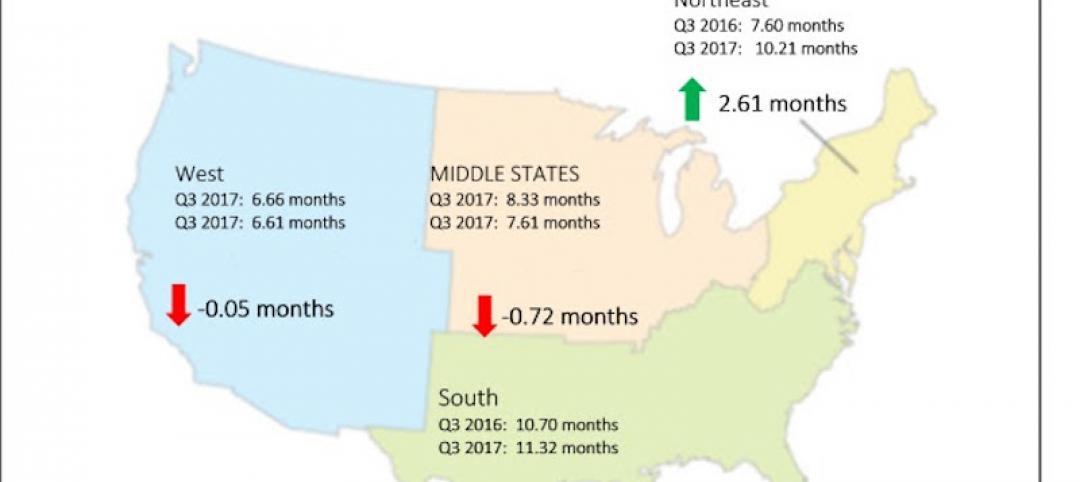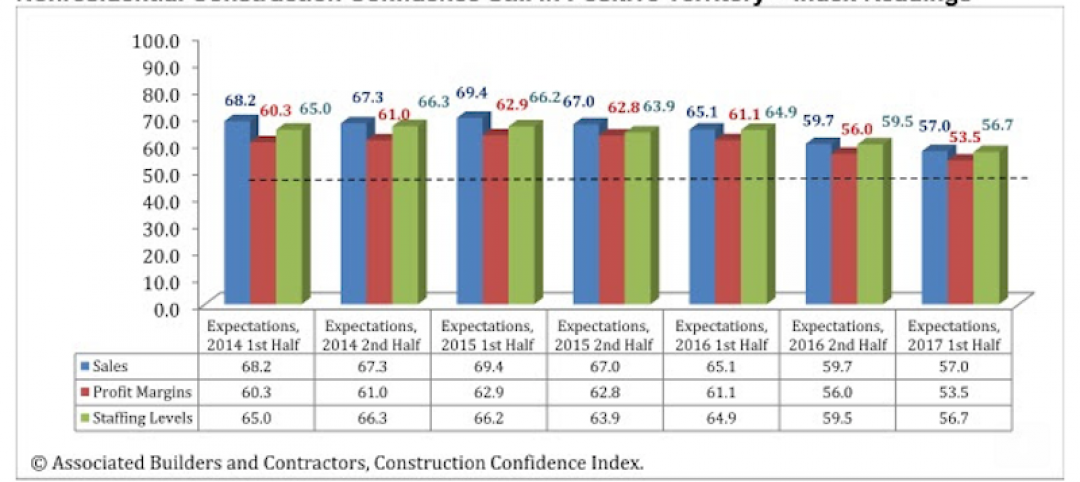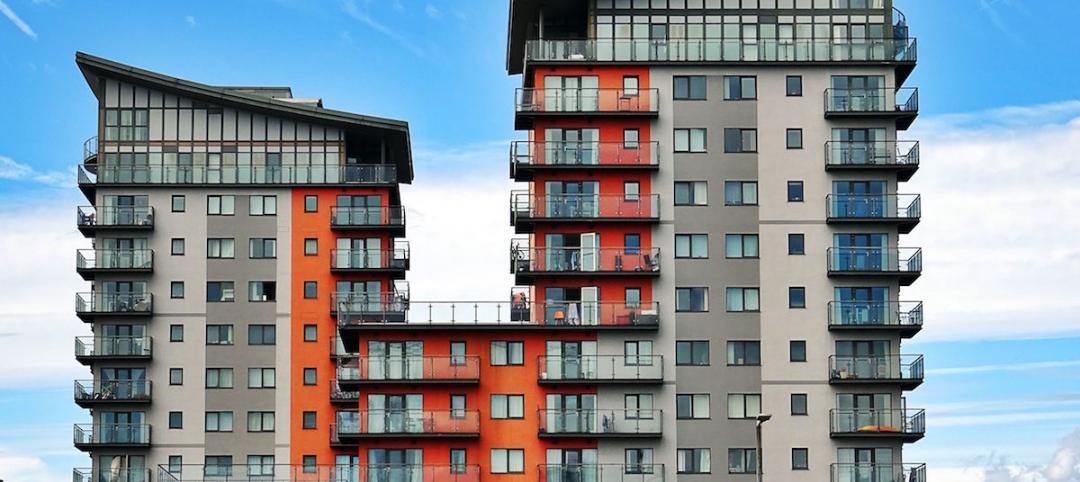Construction spending in February inched up 0.1% from January and increased 3.0% from the February 2017 level, according to an analysis of new government data by the Associated General Contractors of America. Association officials noted that public construction dropped sharply in February and urged federal agencies to move promptly to invest recently approved funding for a variety of construction categories.
"Construction spending in February was marked by healthy gains in most private categories but a widespread and steep downturn in public construction," said Ken Simonson, the association's chief economist. "Year-over-year trends suggest overall expansion, but public investment will depend on how quickly federal agencies follow up on the spending that Congress has authorized."
Construction spending in February increased 0.1% from January to a record level of $1.273 trillion at a seasonally adjusted annual rate. The February total exceeded the year-earlier level by 3.0%. For the month, private nonresidential construction spending rose 1.5%, private residential spending edged up 0.1%, but public construction spending declined by 2.1%. On a year-over-year basis, private residential construction spending increased 5.5%, private nonresidential spending added 1.1%, and public construction spending grew by 1.6%.
"All but one of the 13 public construction categories declined for the month," Simonson pointed out. "In particular, the largest public segment—highway and street construction—decreased 0.2% from January and 5.1% compared with the year-ago level. In contrast, new single- and multifamily construction increased for the month and year-over-year, as did most private nonresidential categories."
Association officials called on federal agencies to act promptly to distribute or spend the construction funds that Congress approved last month as part of an appropriations bill that keeps the government open through September. Officials noted that programs covering highways, other transportation, water and wastewater state revolving funds, and direct federal construction received funding increases after years of spending freezes or cuts, but these authorizations in some cases will expire in less than six months.
"Federal, state and local officials should act quickly to put the newly enacted federal funding to work improving infrastructure," said Stephen E. Sandherr, the association's chief executive officer. "It would be a shame to let an entire construction season pass before putting these new dollars to work improving the nation's public works."
Related Stories
Contractors | Jan 4, 2018
Construction spending in a ‘mature’ period of incremental growth
Labor shortages are spiking wages. Materials costs are rising, too.
Market Data | Dec 20, 2017
Architecture billings upturn shows broad strength
The American Institute of Architects (AIA) reported the November ABI score was 55.0, up from a score of 51.7 in the previous month.
Market Data | Dec 14, 2017
ABC chief economist predicts stable 2018 construction economy
There are risks to the 2018 outlook as a number of potential cost increases could come into play.
Market Data | Dec 13, 2017
Top world regions and markets in the global hotel construction pipeline
The top world region by project count is North America.
Market Data | Dec 11, 2017
Global hotel construction pipeline is growing
The Total Pipeline stands at 12,427 Projects/2,084,940 Rooms.
Market Data | Dec 11, 2017
Construction backlog surges, sets record in third quarter
CBI is a leading economic indicator that reflects the amount of construction work under contract, but not yet completed.
Market Data | Dec 7, 2017
Buoyed by healthy economy, ABC Index finds contractors upbeat
Despite rising construction labor and materials costs, 55% of contractors expect their profit margins to expand in the first half of 2018.
Market Data | Dec 5, 2017
Top health systems engaged in $21 billion of U.S. construction projects
Largest active projects are by Sutter Health, New York Presbyterian, and Scripps Health.
Industry Research | Nov 28, 2017
2018 outlook: Economists point to slowdown, AEC professionals say ‘no way’
Multifamily housing and senior living developments head the list of the hottest sectors heading into 2018, according a survey of 356 AEC professionals.
Market Data | Nov 27, 2017
Construction's contribution to U.S. economy highest in seven years
Thirty-seven states benefited from the rise in construction activity in their state, while 13 states experienced a reduction in activity.


